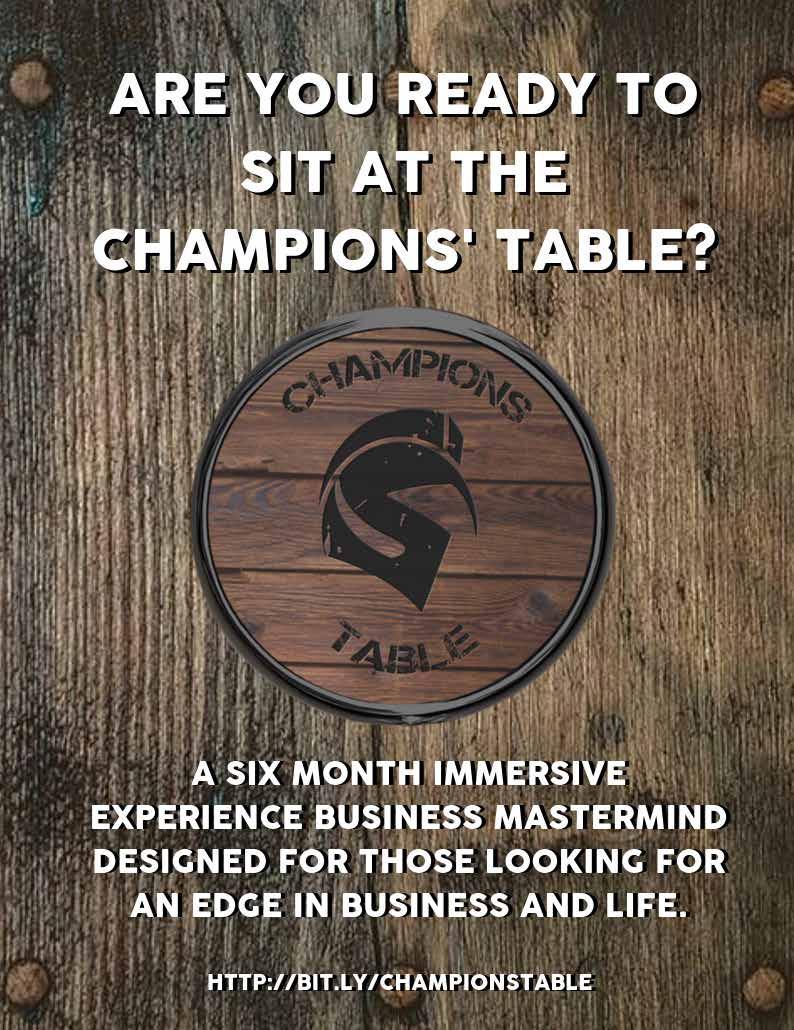
4 minute read
Top 5 Ways to Up your Sales Technology Game in 2020
The New Year always brings with its new sales goals for businesses and everyone always wants to sell more, but not everyone succeeds. Adding sales technology into the mix is one of most common way’s companies try to scale their sales program. But with so many sales tools available, growing companies find it hard to identify the tools that help from the tools that are just shiny distractions. They end up wasting time, money, and resources searching for a holy grail.
Advertisement
Here are the top five ways companies will be focusing on sales technology in 2020.
It’s time to get off the porch. If you haven’t made the jump into sales technology yet, you are at risk of getting left in the dust. The gap between early adopters of sales technology and those that still haven’t fully dived in is widening fast. Companies that understand that “how you sell” is as important as “what you sell” are beginning to dominate their competition.
If you are one of the companies that has been slow to adopt new sales technology, don’t worry, there is still time. But you must understand that you can’t just skip ahead to using all the advanced technologies, you must start laying the foundations, so you don’t fall further behind. Identify specific areas within your sales process that you want to improve and create priorities to determine which tools you need and which you can live without.
CRM becomes a necessity, not a luxury
I don’t care who you are, every company has leads, prospects, and customers. Spreadsheets were the time-honored method for recoding interactions with leads and opportunities. But we all know that’s not the most efficient way to streamline the Sales process.
Your CRM (customer relationship management system) does more than managing your contacts and crunching your sales numbers. It is a tool that helps you track your sales activities, your outreach campaigns, your daily tasks and the customers’ journey inside your sales pipeline. It helps manage the process that enable you and your sales team to push the deals as smoothly and as quickly as possible towards a close.
Chatbots initiate the sales process
Chatbots aren’t just a tool marketing uses to build lists anymore. Buyers now expect an on-demand experience and that can be provided through chatbots Chatbots are now acting as the first point of contact in the sales process and engage with customers on an introductory level – answering their queries, registering complaints, etc. Sales teams may take the conversation further ahead from there. Chatbots provide an “always-on” source of consistent information for visitors, help companies better qualify and track new leads, and help prospects make a smoother transition from top of the funnel interest to interaction with a salesperson.
Top salespeople make their brand personal.
It’s not enough to have a strong corporate brand anymore. Successful salespeople now need to be part influencer. While it sounds cliché, people buy from those they know, like and trust. And today, the best way to get to know, like and trust someone is by consuming their content online. Clients are now mobile, always connected, and using technology to share and ingest massive amounts of data.

Look for more salespeople to start publishing articles, appearing on podcasts, creating videos, and finding innovative ways to share their ideas online, establishing their subject matter expertise and building their brand for their core audience.
Better Customer Experience
Today’s consumers access data on multiple channels and expect a seamless interaction with your brand as they move from device to device. The answer? Integrate customer information from internal systems such as loyalty programs and content management systems with automation platforms to create user profiles based on data from multiple channels, collected in real-time. This data can then be used to draft messages for each segment to reach different audiences wherever they are in the funnel no matter what device they are on.
How companies collect and use personal data is a topic that is becoming more and more important to customers. To maintain consumers’ trust while still encouraging them to share personal data requires marketers to implement interactive experiences that make their prospects feel safe sharing information and that they’re receiving a fair exchange of value for the data.
The sales programs that adapt to evolving customer expectations, while leveraging tools and technology to increase productivity, will gain a competitive advantage over those that remain stuck in their ways.

Kevin Snow is the founder of Time On Target, a digital marketing agency that helps businesses effectively use technology to grow their business. Kevin has helped companies all across the United States shorten their sales cycle and increase their closing rates by utilizing sales automation to increase the time sales teams are in front of prospects selling. You can reach Kevin at kevin.snow@time-on-target.com.










